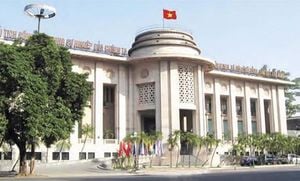Indonesia and Apple Inc. have reportedly reached an agreement to lift the ban on the sale of iPhone 16s, paving the way for the iconic smartphone to re-enter the market after months of restrictions. This decision came after prolonged discussions and is viewed as significant not only for Apple but also for Indonesia’s economic aspirations.
The ban on the iPhone 16 was imposed by Indonesia back in October, primarily because Apple did not meet the government’s mandate requiring smartphones sold domestically to contain at least 35% locally made components. The enforcement of this regulation led to frustrations on both sides, thrusting Apple’s compliance and investment strategy under the microscope.
Reports indicate Apple has agreed to invest $1 billion to establish manufacturing capabilities within Indonesia, which reflects its commitment to adhere to local production standards. This investment is aimed at enhancing the production of smartphone components and creating local jobs, signifying Apple's long-term strategy to bolster its presence within the Indonesian market.
Details surrounding the new agreement suggest Apple will also engage with local educational institutions, committing to train Indonesian professionals in research and development related to its products. This initiative, distinct from its existing Apple academies, aims to empower local talent and innovate within the nation’s tech industry.
Sources familiar with the matter state the Indonesian Ministry for Industry is expected to formalize this agreement soon. A memo of agreement between Indonesia and Apple could be signed as early as this week, allowing for the necessary regulatory permits to sell the iPhone 16 within the country.
The resolution of this situation is particularly important for Indonesia's current administration, led by President Prabowo. The agreement has been described as a win for his government, which has faced criticism and policy setbacks recently related to foreign investment. Securing Apple’s commitment not only boosts the local economy but also enhances the nation’s technological capabilities.
While the talks have concluded positively, it appears Apple does not have immediate plans to commence manufacturing iPhones fully within Indonesia, even with the new agreement. Nevertheless, analysts suggest the investment signals Apple’s intent to create sustainable operational frameworks within the region.
Neither Apple nor Indonesia’s Ministry for Industry responded immediately to inquiries from media outlets concerning the latest developments. The industry looks forward to the upcoming press briefing where officials will likely elaborate on the terms of the agreement, as well as the anticipated benefits for Indonesia’s tech ecosystem.
The ban's lifting indicates Apple’s willingness to collaborate with Indonesian authorities and adapt to the local market's operational requirements. With this collaborative approach, both parties aim to solidify their relationships and explore avenues for future ventures.



